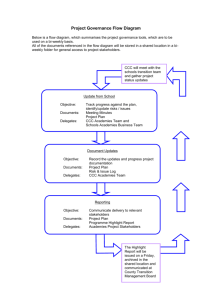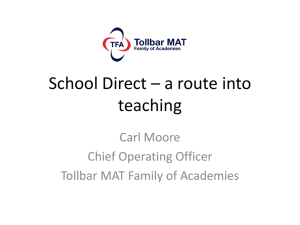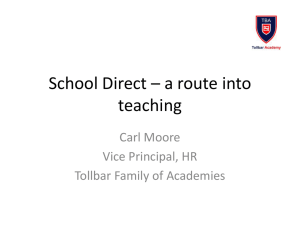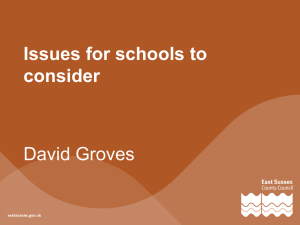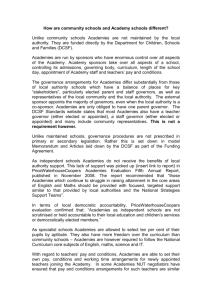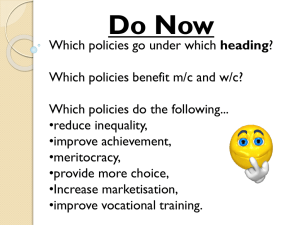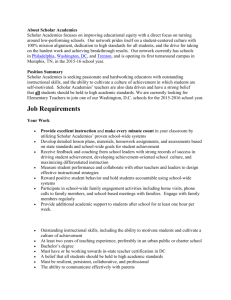workshop on the role of academies of sciences within their national
advertisement
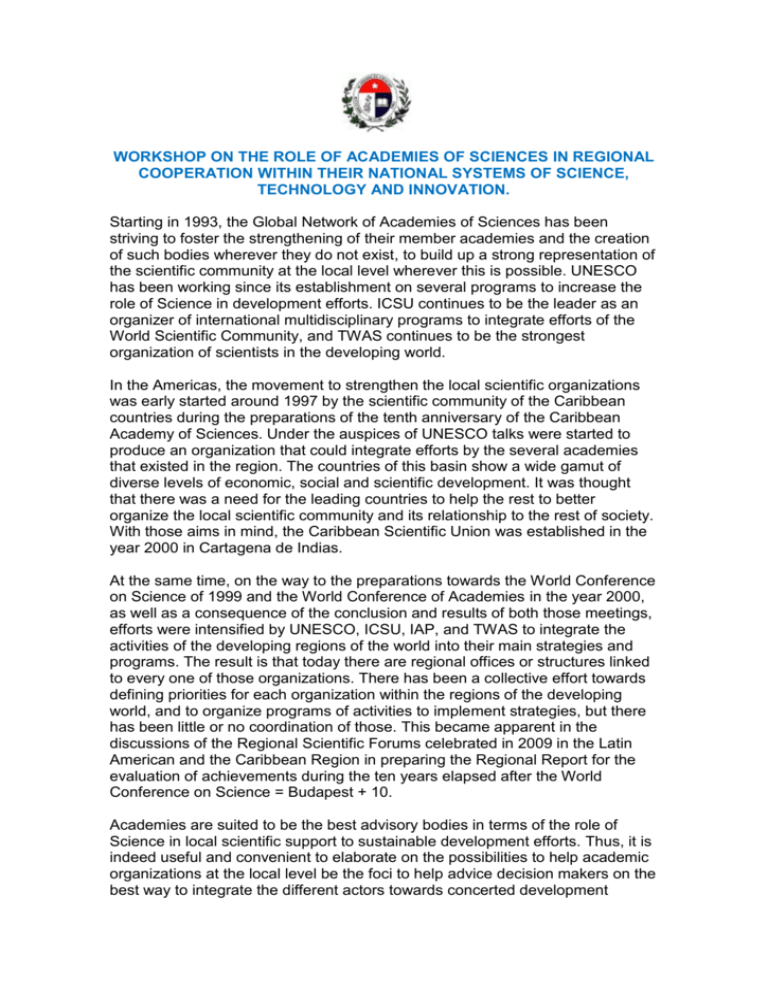
WORKSHOP ON THE ROLE OF ACADEMIES OF SCIENCES IN REGIONAL COOPERATION WITHIN THEIR NATIONAL SYSTEMS OF SCIENCE, TECHNOLOGY AND INNOVATION. Starting in 1993, the Global Network of Academies of Sciences has been striving to foster the strengthening of their member academies and the creation of such bodies wherever they do not exist, to build up a strong representation of the scientific community at the local level wherever this is possible. UNESCO has been working since its establishment on several programs to increase the role of Science in development efforts. ICSU continues to be the leader as an organizer of international multidisciplinary programs to integrate efforts of the World Scientific Community, and TWAS continues to be the strongest organization of scientists in the developing world. In the Americas, the movement to strengthen the local scientific organizations was early started around 1997 by the scientific community of the Caribbean countries during the preparations of the tenth anniversary of the Caribbean Academy of Sciences. Under the auspices of UNESCO talks were started to produce an organization that could integrate efforts by the several academies that existed in the region. The countries of this basin show a wide gamut of diverse levels of economic, social and scientific development. It was thought that there was a need for the leading countries to help the rest to better organize the local scientific community and its relationship to the rest of society. With those aims in mind, the Caribbean Scientific Union was established in the year 2000 in Cartagena de Indias. At the same time, on the way to the preparations towards the World Conference on Science of 1999 and the World Conference of Academies in the year 2000, as well as a consequence of the conclusion and results of both those meetings, efforts were intensified by UNESCO, ICSU, IAP, and TWAS to integrate the activities of the developing regions of the world into their main strategies and programs. The result is that today there are regional offices or structures linked to every one of those organizations. There has been a collective effort towards defining priorities for each organization within the regions of the developing world, and to organize programs of activities to implement strategies, but there has been little or no coordination of those. This became apparent in the discussions of the Regional Scientific Forums celebrated in 2009 in the Latin American and the Caribbean Region in preparing the Regional Report for the evaluation of achievements during the ten years elapsed after the World Conference on Science = Budapest + 10. Academies are suited to be the best advisory bodies in terms of the role of Science in local scientific support to sustainable development efforts. Thus, it is indeed useful and convenient to elaborate on the possibilities to help academic organizations at the local level be the foci to help advice decision makers on the best way to integrate the different actors towards concerted development efforts. On the other hand, there should be an effort on the part of international scientific organizations to clarify their programs and strategies in relation to each other so as to better integrate their endeavors. The workshop should present the regional inputs and activities of each of the organizations involved, as well as the status of development of the collective and local scientific communities in relation to those organizations. The establishment of a working group that could produce a report during the rest of the year is suggested. We would have the chance to have in Havana in May the whole Executive Board of ICSU, the leaders of the Regional Offices of UNESCO in the Americas, the Co Chairs of IAP, the whole Executive Committee of IANAS, and representatives of all of the Academies in the region, including the Governing Board of the Caribbean Scientific Union, plus delegations from the NAS, AAAS, the Smithsonian Institution, and many other academies like the Royal Society, the South African, Indian and Chinese Academy, the Head of the Regional Office of TWAS, and representatives from the Regional Office of ICSU. There is a chance for a good discussion on how all organizations view their role in local capacity building in our region, how they could coordinate efforts towards common goals, and finally what role can Academies have in those efforts. The development and capability of the local Academic institutions vary greatly in our region, but undoubtedly, with the strengthening of the Academies in Colombia, Guatemala, Honduras, and Dominican Republic; the creation of an Academy in Nicaragua, and efforts on the way towards the establishment of such institutions in Ecuador, Uruguay, Panama and El Salvador, the Latin American region can become an example in developing a blueprint for the synergy of all regional cooperation efforts of international scientific organizations. The celebration of the 150 anniversary of the Cuban Academy can showcase the role of such an institution in local capacity building. The outcome of the workshop could be to establish a work group to produce a report that could help academies acquire visibility within their local societies. The workshop will be organized in four panels. In each panel there will be presentations of seven minutes by each of five panelists and followed then by a general discussion in which participation should be restricted to three minutes at the most by each speaker. In preparation of the workshop, panelists could provide papers or powerpoint presentations in advance to host in the website of the workshop. Provisional titles and panelists are: PROGRAM INTERNATIONAL WORKSHOP ON THE ROLE OF ACADEMIES IN REGIONAL SCIENTIFIC COOPERATION: LATIN AMERICA AND THE CARIBBEAN. 8:30. Registration. 8:50. Introduction by Sergio Jorge Pastrana. Welcome. Presentation of the organization and aims of the workshop. 9:00-10:30 First panel. Four 7 minutes presentations and one hour discussion. The strategic programs of international scientific organizations (UNESCO, ICSU, IAP, TWAS). Chair: Hermann Van Hoff Rapporteur: Deliang Chen Panelists: Jorge Grandi, Catherine Brechignac, Howard Alper, Romain Murenzi. Coffee Break 10:30-10:50. 10:50-12:20 Second panel. Five 7 minutes presentations and 55 minutes discussion. Regional activities of those organizations (IANAS, ICSU-ROLAC, CCC, TWASROLAC). Chair: Yuan T. Lee Rapporteur: Hernan Chaimovich Panelists: Michael Clegg, Jose Antonio de la Peña, Nelson Moreno, Ismael Clark, (TWAS-ROLAC TBC). 12:30-14:00 Lunch 14:00-15:30 Third panel. Four 7 minutes presentations and one hour discussion. Local academic development and involvement of Academies in regional activities. Chair: Juan Pedro Laclette Rapporteur: Ma del Carmen Samayoa Panelists: Tara Dasgupta, Lilliam Alvarez, Juan Asenjo, Jaime Rodríguez Lara. Coffee Break 15:30-15:50. 15:50-17:20 Fourth panel. Four 7 minutes presentations and one hour discussion. The advisory role of academies as linkages between regional scientific activities and local decision making. Chair: Mohamed Hassan Rapporteur: Bernie Jones Panelists: Fidel Castro Diaz-Balart, Graham Bell, Arturo Menchaca, Jorge Crisci. 17:20-18:00 Conclusions of the workshop. Chair: Jorge Huete. Reports of the panels. Definition of the road ahead.
